
Professional services firm Huron Consulting Group (NASDAQ: HURN) reported Q3 CY2025 results topping the market’s revenue expectations, with sales up 16.7% year on year to $441.3 million. The company expects the full year’s revenue to be around $1.66 billion, close to analysts’ estimates. Its non-GAAP profit of $2.10 per share was 12.3% above analysts’ consensus estimates.
Is now the time to buy Huron? Find out by accessing our full research report, it’s free for active Edge members.
Huron (HURN) Q3 CY2025 Highlights:
- Revenue: $441.3 million vs analyst estimates of $431.2 million (16.7% year-on-year growth, 2.3% beat)
- Adjusted EPS: $2.10 vs analyst estimates of $1.87 (12.3% beat)
- Adjusted EBITDA: $67.44 million vs analyst estimates of $64.42 million (15.3% margin, 4.7% beat)
- The company reconfirmed its revenue guidance for the full year of $1.66 billion at the midpoint
- Management raised its full-year Adjusted EPS guidance to $7.60 at the midpoint, a 1.3% increase
- Operating Margin: 11.3%, in line with the same quarter last year
- Free Cash Flow Margin: 20.3%, similar to the same quarter last year
- Market Capitalization: $2.47 billion
“Our third quarter performance was strong, driven by growth across all three operating segments. Companywide revenues before reimbursable expenses (RBR) grew 17% in the third quarter, including 10% organic growth, reflecting a robust demand environment for our services and strong execution by our teams,” said Mark Hussey, chief executive officer and president of Huron.
Company Overview
Founded in 2002 during a time of significant regulatory change in corporate America, Huron Consulting Group (NASDAQ: HURN) is a professional services company that helps organizations develop growth strategies, optimize operations, and implement digital transformation solutions.
Revenue Growth
A company’s long-term sales performance is one signal of its overall quality. Any business can experience short-term success, but top-performing ones enjoy sustained growth for years.
With $1.66 billion in revenue over the past 12 months, Huron is a mid-sized business services company, which sometimes brings disadvantages compared to larger competitors benefiting from better economies of scale. On the bright side, it can still flex high growth rates because it’s working from a smaller revenue base.
As you can see below, Huron’s sales grew at an excellent 12.3% compounded annual growth rate over the last five years. This is a great starting point for our analysis because it shows Huron’s demand was higher than many business services companies.
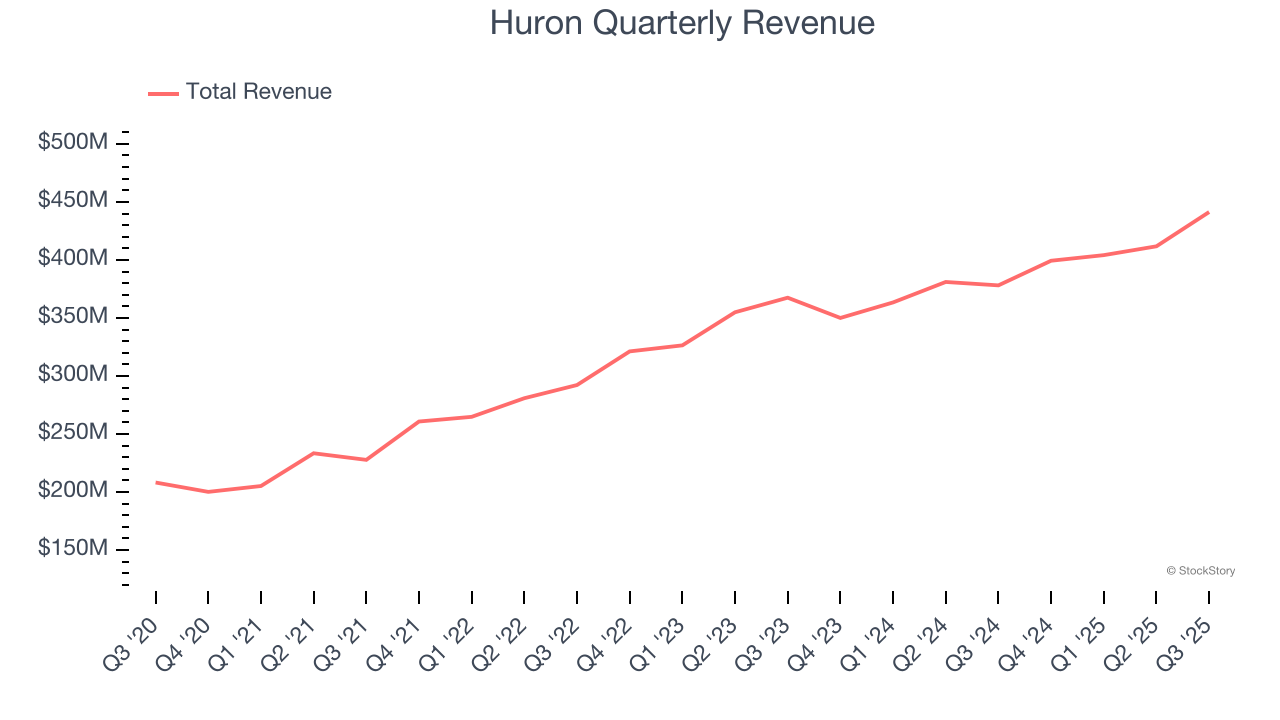
We at StockStory place the most emphasis on long-term growth, but within business services, a half-decade historical view may miss recent innovations or disruptive industry trends. Huron’s annualized revenue growth of 10% over the last two years is below its five-year trend, but we still think the results suggest healthy demand. 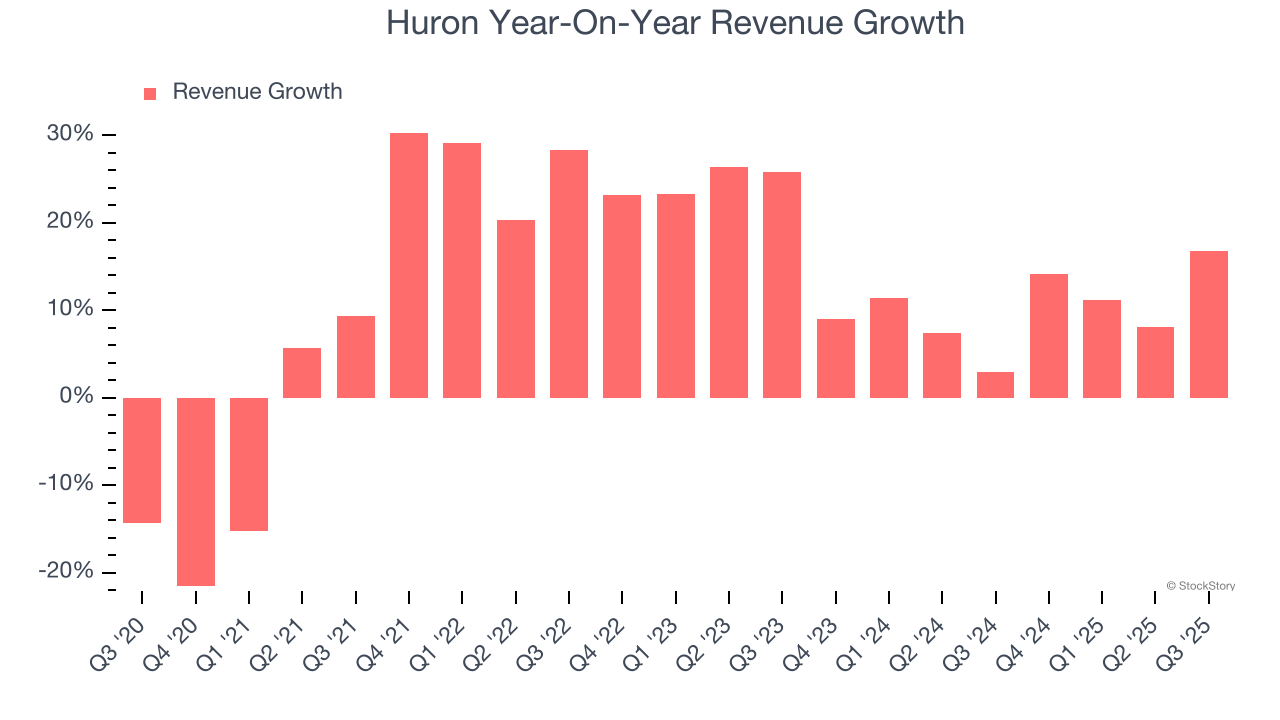
This quarter, Huron reported year-on-year revenue growth of 16.7%, and its $441.3 million of revenue exceeded Wall Street’s estimates by 2.3%.
Looking ahead, sell-side analysts expect revenue to grow 9.7% over the next 12 months, similar to its two-year rate. This projection is commendable and suggests the market is baking in success for its products and services.
Here at StockStory, we certainly understand the potential of thematic investing. Diverse winners from Microsoft (MSFT) to Alphabet (GOOG), Coca-Cola (KO) to Monster Beverage (MNST) could all have been identified as promising growth stories with a megatrend driving the growth. So, in that spirit, we’ve identified a relatively under-the-radar profitable growth stock benefiting from the rise of AI, available to you FREE via this link.
Operating Margin
Huron was profitable over the last five years but held back by its large cost base. Its average operating margin of 8.7% was weak for a business services business.
On the plus side, Huron’s operating margin rose by 7.1 percentage points over the last five years, as its sales growth gave it immense operating leverage.
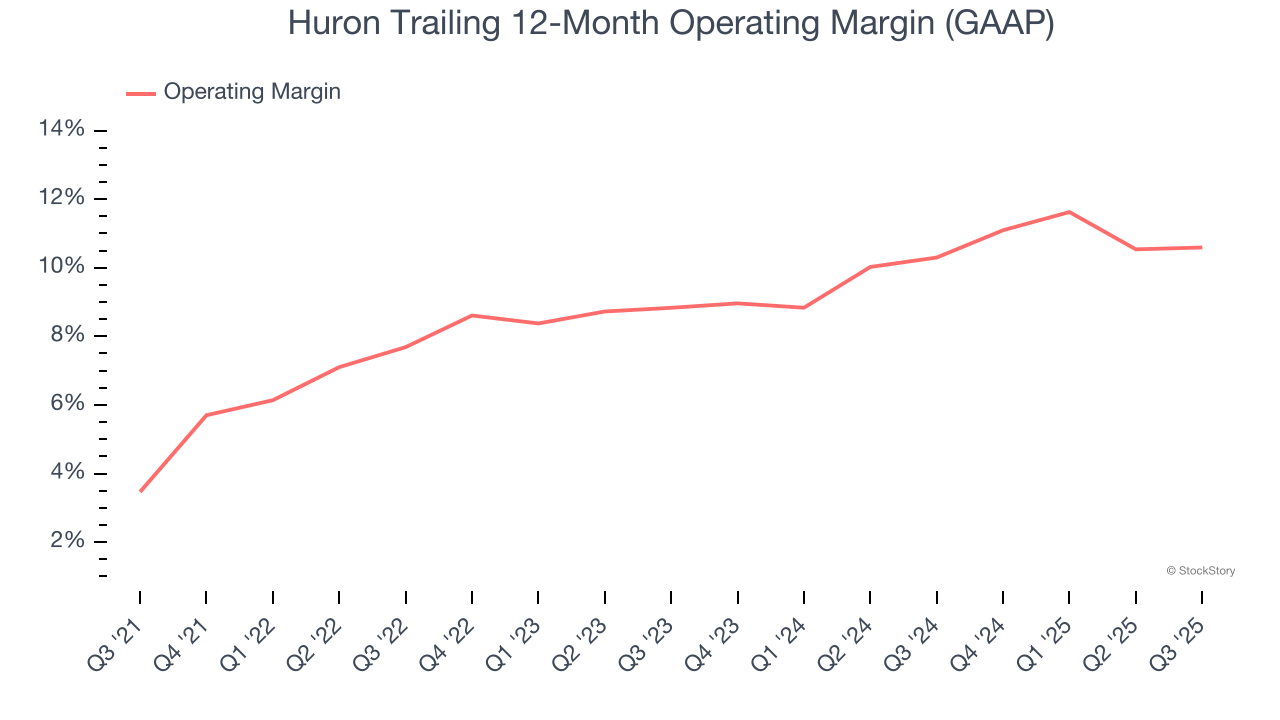
This quarter, Huron generated an operating margin profit margin of 11.3%, in line with the same quarter last year. This indicates the company’s overall cost structure has been relatively stable.
Earnings Per Share
Revenue trends explain a company’s historical growth, but the long-term change in earnings per share (EPS) points to the profitability of that growth – for example, a company could inflate its sales through excessive spending on advertising and promotions.
Huron’s EPS grew at an astounding 24.8% compounded annual growth rate over the last five years, higher than its 12.3% annualized revenue growth. This tells us the company became more profitable on a per-share basis as it expanded.
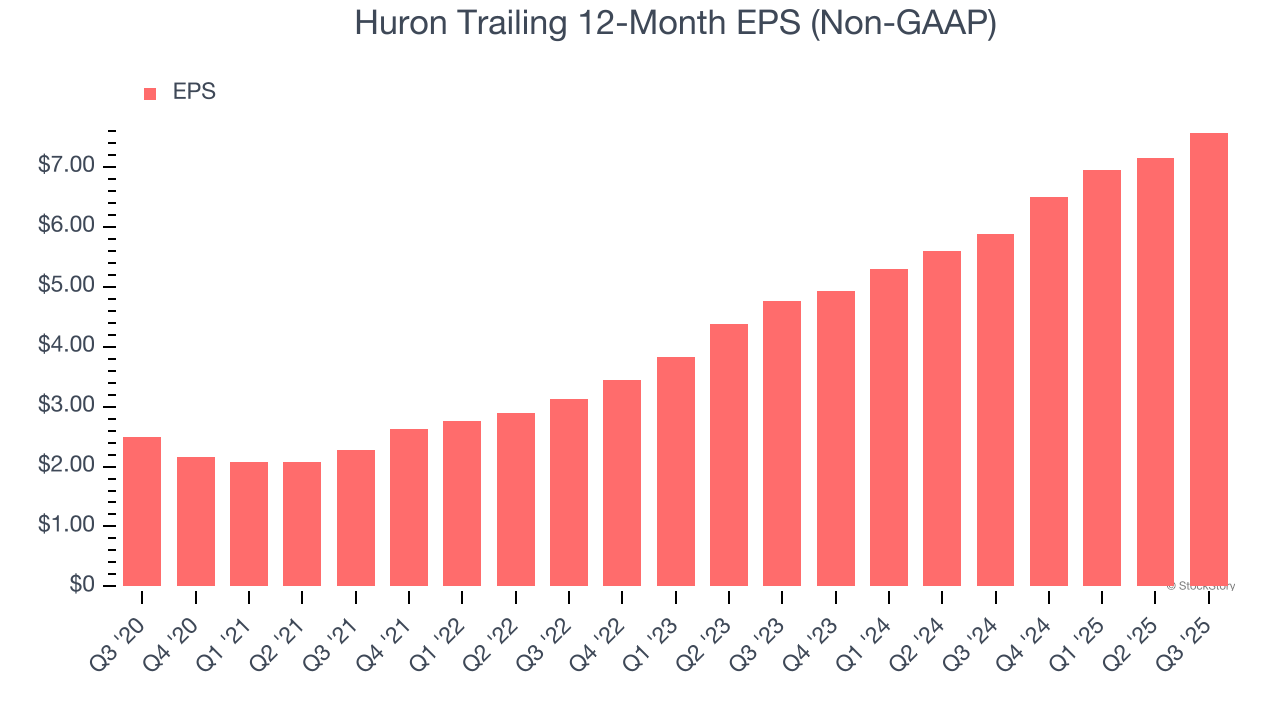
We can take a deeper look into Huron’s earnings quality to better understand the drivers of its performance. As we mentioned earlier, Huron’s operating margin was flat this quarter but expanded by 7.1 percentage points over the last five years. On top of that, its share count shrank by 19.8%. These are positive signs for shareholders because improving profitability and share buybacks turbocharge EPS growth relative to revenue growth. 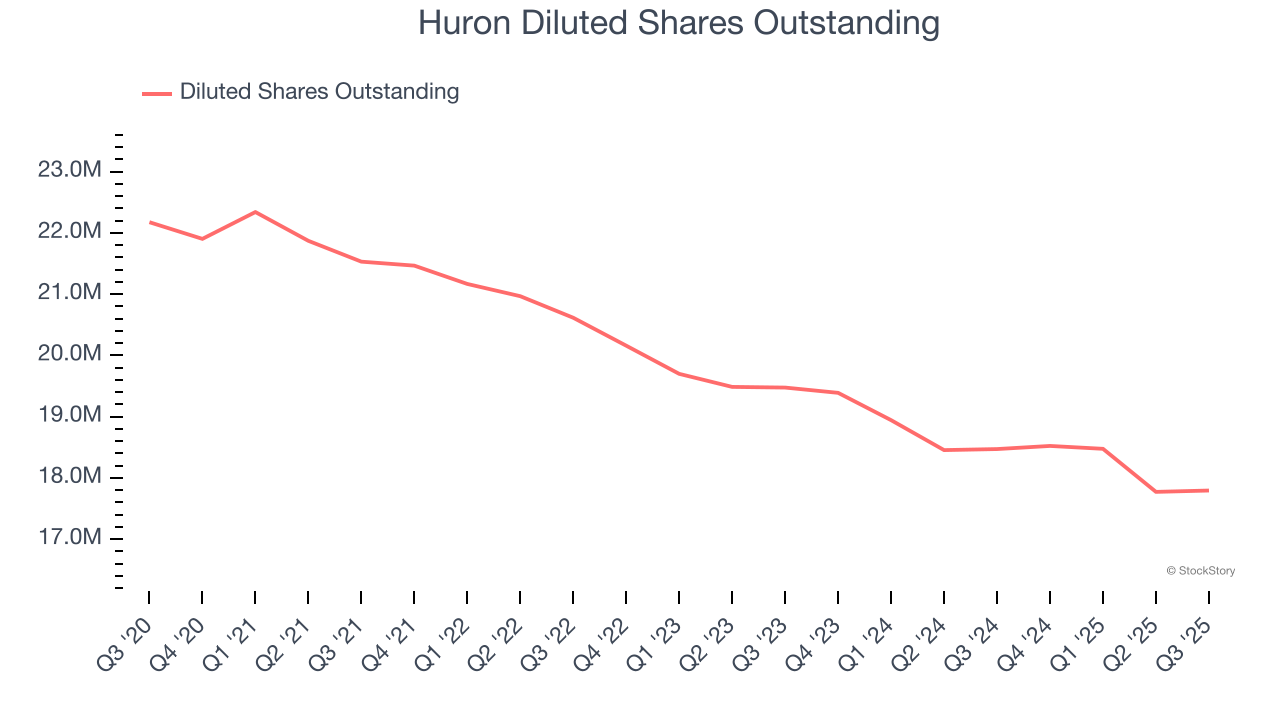
Like with revenue, we analyze EPS over a more recent period because it can provide insight into an emerging theme or development for the business.
For Huron, its two-year annual EPS growth of 26.1% was higher than its five-year trend. We love it when earnings growth accelerates, especially when it accelerates off an already high base.
In Q3, Huron reported adjusted EPS of $2.10, up from $1.68 in the same quarter last year. This print easily cleared analysts’ estimates, and shareholders should be content with the results. Over the next 12 months, Wall Street expects Huron’s full-year EPS of $7.57 to grow 9.9%.
Key Takeaways from Huron’s Q3 Results
It was good to see Huron beat analysts’ EPS expectations this quarter. We were also happy its revenue outperformed Wall Street’s estimates. Overall, we think this was a solid quarter with some key areas of upside. The stock remained flat at $152.48 immediately following the results.
Should you buy the stock or not? When making that decision, it’s important to consider its valuation, business qualities, as well as what has happened in the latest quarter. We cover that in our actionable full research report which you can read here, it’s free for active Edge members.





